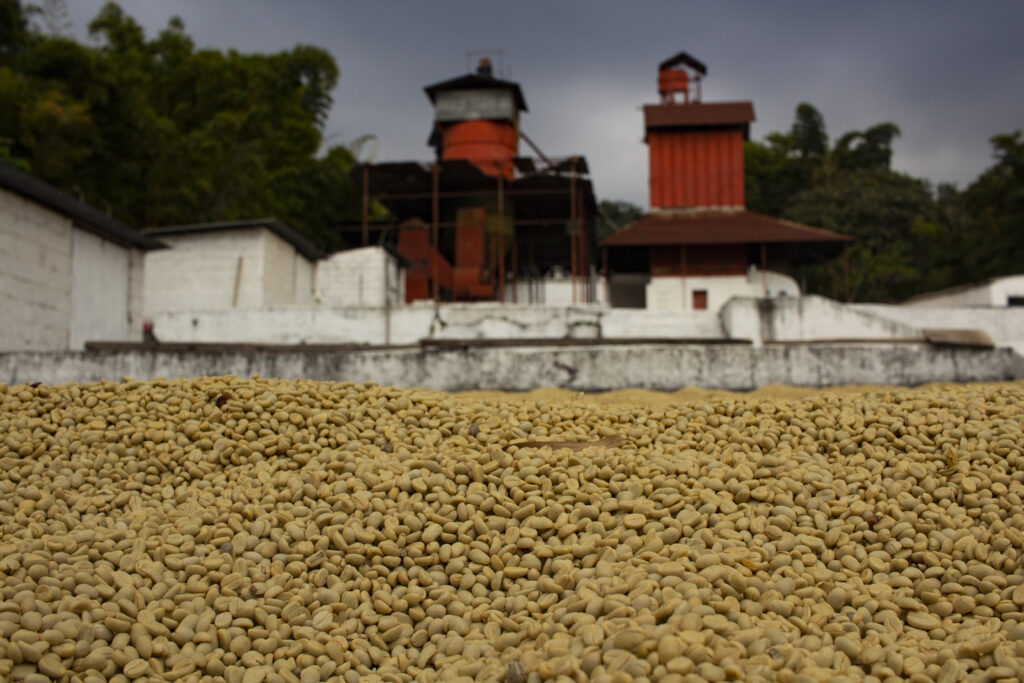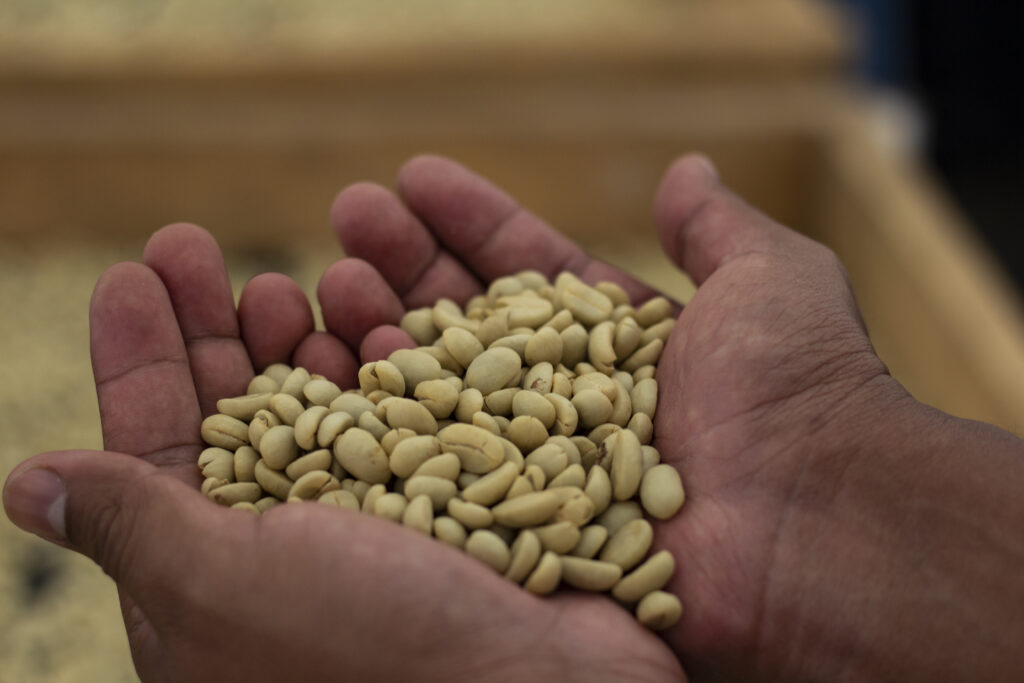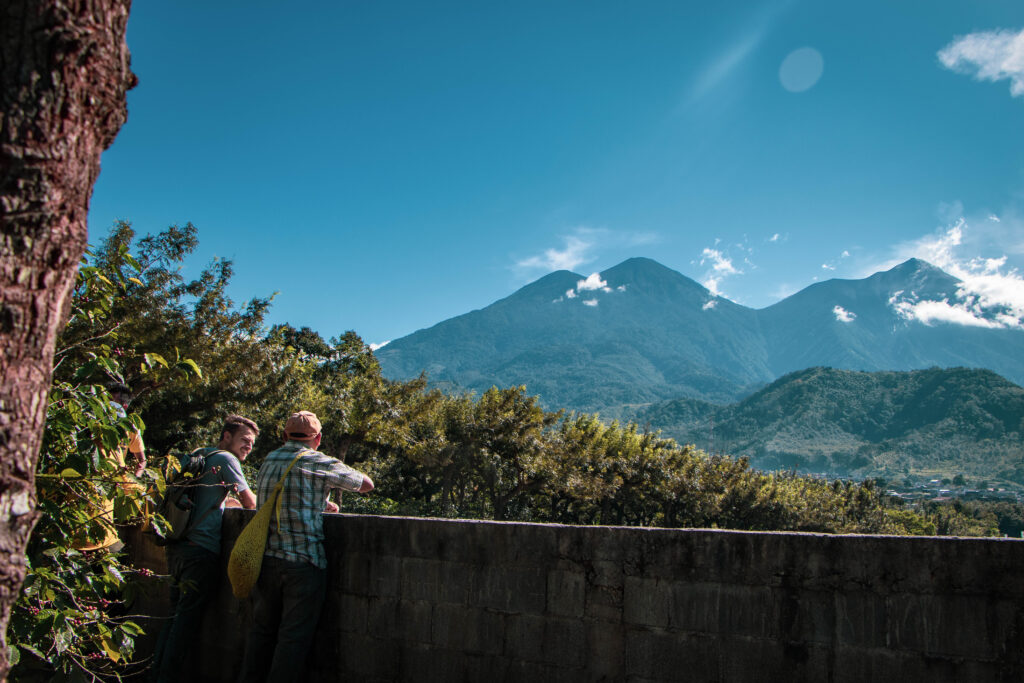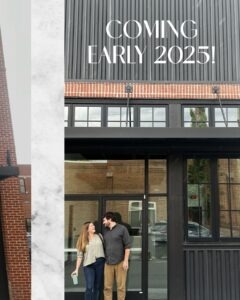Asulon Collective featuring Ryan Chipman with Yepocapa Coffee.
Today we are wrapping up our three-part series! It’s truly been so interesting, educational, and eye opening. Let’s jump back in together…
Let’s talk about transparent pricing. I think this practice is really incredible; and what’s even more incredible is Yepocapa Coffee not only practicing transparent pricing, but actively keeping your relationships held accountable to this. Transparency and accountability require integrity. Can you explain what transparent pricing is and why it’s so important?
“Yeah! If you ever find yourself deeply involved in the coffee industry, there’s a strange phenomena where roasters are paying good prices and yet farmers rarely are receiving half of that value. There’s lots of talk about direct-trade and fair-trade and yet there’s a clear disconnect between what’s being marketed in the US and what’s really happening in Guatemala. (I can only speak for Guatemala.)
Although it’s no one’s fault, the industry isn’t really set up to keep the farmers first and/or incentivize sustainable growth. Oftentimes, due to cash flow scenarios, c-market fluctuations, and financial liability concerns, farmers are paid as low of a price as possible, which then leaves exporters and importers at liberty to try and make as much money as possible.
(The thing to remember here is that it’s sadly justifiable. Exporters and Importers are oftentimes buying and selling millions of dollars worth of coffee that has a fluctuating price point. Since there’s this much risk and liability, it makes sense that they should reap a profit for fronting the capital to buy this coffee before it’s sold and/or paid for.)

We choose to work a little differently. One of the main issues behind the C-market system is that it doesn’t incentive quality.
So when we wanted to incentivize quality we also wanted to create a system where as the farmers produced better coffees, that they would be the ones to benefit financially and not necessarily us reaping from their work. The only way we thought to do this was to set a YC maximum profit limit per pound and to do price transparency reports so that roasters can have assurance of value being communicated down and that farmers would know that as they produce better coffees, they really will reap 100% of it’s growth in value.”
You have been motivated by relationship and are driven to give honor to others. What inspires you and continues to propel you to be a refuge for others?
“Don Timoteo Charuc Sian is and has been one of the main leaders behind La Cooperativa San Pedrana since 2001 and since I’ve been involved. Ever since the day he shared with me his dreams and vision for their cooperative, we connected on a deeper level than just business. His heart to bless others, his community, and to leave a better future for his children, was something genuine, incredible, and one of a kind. When it came time to start meeting with roasters, it was easy for me to talk about the farmers, their coffee, and Yepocapa because they were more than business clients; they had become our friends.
This aspect of relationship has made coffee so much more fun and meaningful for me. I don’t just sell coffee to make money. I sell coffee to see my friends flourish and benefit their community for a better future for the next generation of coffee farmers. It’s cool too when the byproduct of these relationships is honestly great tasting coffees!”
What are you currently dreaming about or what are you hoping for?
“Oh my! A lot! I’ve never been one of those people wanting to build some sort of big business, but as we’ve been meeting more and more farmers, it’s been inspiring us to build more relationships with roasters. Why? Farmers are willing to do almost anything to get out of the traditional commodity market and engage in more relational trading. Sure there’s more risk and there may be a higher cost overall, but it ensuring farmers that they can actually receive a sustainable value for their work. This form of trading gives dignity and restores back honor to their work. It’s for these reasons we want to grow. We really think coffee should be bought and sold in this way. It’s a lot of work but we love it!”

What words would you like to share with those reading on how to be a place of refuge for others?
“When I think of some of the major humanitarians out there in the world, they all took great steps of faith. Many of them left their homes, abandoned social norms, took time to learn and assimilate into other cultures, and all for the desire to help others. If you get a chance to ask them if it was worth it, they’d say yes without hesitation. It can seem as if being a refuge to others could be a burdensome task, but it’s actually a joyous task.“
So ask questions, be willing to make mistakes, don’t be afraid to have big visions, seek to serve others, stand up for the oppressed, and enjoy each season of life for what it is.
Ryan Chipman – Co-Founder of Yepocapa Coffee
Thank you so much for joining us and another huge special thanks to Ryan for sharing his experience! What an honor it’s been. I hope you have learned something new about the coffee industry and been inspired by how a cup of coffee can make an such an impact. Next time you drink a cup of coffee I hope the world feels a little smaller after reading how Yepocapa Coffee builds relationships between people just like you and hard-working coffee farmers.

Be sure to connect with us and let us know what you thought about this series! Also, want to learn more or connect with Yepocapa Coffee? If you haven’t already done so, be sure to check them out at their website: http://www.yepocapacoffee.com or on social media! Facebook/Instagram @yepocapacoffe and Twitter @Yepocapa_Coffee.
Edited by: Alida Cassinari, @hacassinari
Permission to use photos from Ryan Chipman with Yepocapa Coffee.
Photo credit: @eliscet & @marvin_a_c_s







